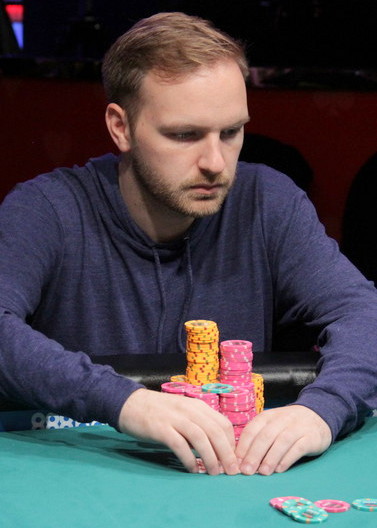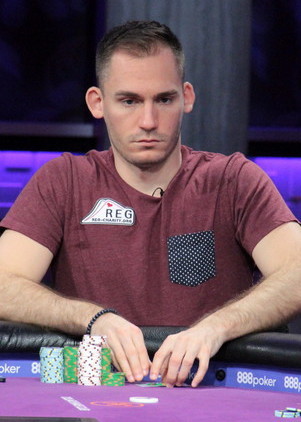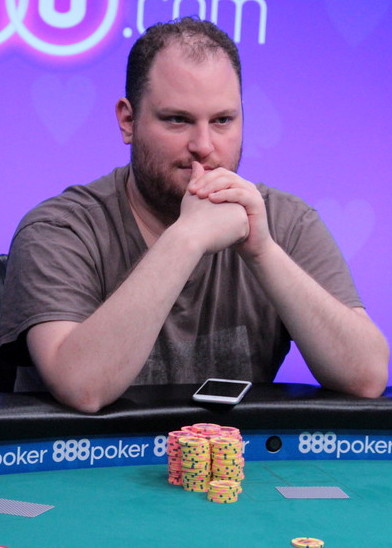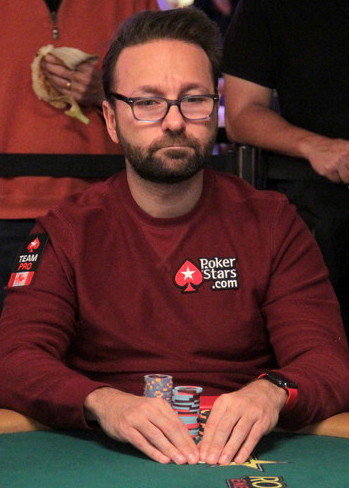






Soft Play: Does The High-Stakes Poker Tournament World Have A Problem?Poker Pros Sound Off on Soft Play, Collusion, and Swaps |
|
|

Alex Foxen and Kristen Bicknell After Chopping $5,000 Venetian Event
Some in the high-stakes community believe that Australian poker pro Kahle Burns, who finished third in the event, was put in an unfair situation having to battle against a poker couple who clearly had no interest in eliminating one another before reaching heads-up play. Others believe that neither Bicknell nor Foxen can be blamed for doing what was obviously in their financial best interests, especially after they offered Burns a chop and he declined.
Of course, this isn’t the first time that a poker couple has gone deep in a tournament together. Husband and wife team Jason and Natasha Mercier each finished within one spot of each other in a Seminole Hard Rock event in 2016. David Sands and his girlfriend Erika Moutinho each finished 30th and 29th in the 2011 WSOP main event, and at one point were even seated next to each other. Just last April, Tim Reilly was forced to bust his wife Ness deep in a WSOP Circuit event.

Mike Watson
Mike Watson, who won the 2012 World Series of Poker Europe High Roller for $1.3 million, wrote about the issue in a recent blog entry.
“I regularly play high roller events, where a large percentage of the player pool consists of some subset of the same group of pros,” wrote Watson. “They often have pieces of each other, and there are many groups of close friends among these pros. Collusion is a very serious concern in this environment where the stakes are so high, the player pool so tightly knit, and financial incentives for an individual are potentially not completely aligned with their own performance in the tournament.”

Justin Bonomo
“The most basic game theory in poker is bluffing frequency,” Bonomo wrote. “If someone rarely bluffs, you call them less. If they bluff a ton, you call them more. Simple. If two players cut out a large percent of their bluffs against each other, that means a lot less money should go in on every street. The pots will be smaller and less confrontational, and they will bust each other a lot less. If they do this at a [final table], all the other players become less likely to hit pay jumps and suffer as a result. It is not ok to avoid bluffing someone at a [final table] because you like them.”
Scott Seiver, who has won the vast majority of his $23 million in events with buy-ins of $25,000 or more, believes that while the potential for soft-play is there, he doesn’t currently see a problem.

Scott Seiver
While the lack of transparency when it comes to staking arrangements and swaps is frustrating for some, Bryn Kenney, who has eight high roller wins on his tournament resume with $25 million in earnings, accepts is as a natural part of the high-stakes scene.

Bryn Kenney
Daniel Negreanu, who is poker’s all-time tournament earnings leader with more than $38 million, said that the players usually take care of any issues that may come up at the table themselves.
“It’s very difficult to police,” said Negreanu. “I was in the Super High Roller Bowl at the final table, and when I was three-handed I asked Jason [Koon] and Justin [Bonomo], ‘How big is your piece of each other?’ Because if it’s very significant, whether they want to acknowledge it or not, it’s going to have an effect, somewhat, on their mind. So, I felt it was worthwhile to know that. But it’s difficult to make it a policy, because the only people who would share [that information] are the honest people. It’s self-policed for the most part.”
In fact, Kenney even went so far as to offer up an explanation as to why soft play might occur naturally between players in these events.

Daniel Negreanu
The solution to the problem, or even if there is a problem to begin with, remains unclear. Negreanu responded to Bonomo’s blog with a Tweet suggesting that players who swap with each other prior to a tournament should cancel the swap if they ever get seated at the same table, an idea echoed by others, including Allen Cunningham and Brandon Cantu.
In the high roller world, that idea would be especially appealing to the amateur businessmen, who often have a much higher percentage of their own action and prefer a more straight-forward experience against the pros. Of course, the odds of being seated at the same table as someone you’ve swapped with is much higher in a high roller event, and without those swaps, the high variance of five-figure-and-above buy-ins may become unappealing for those who can’t handle the swings.
